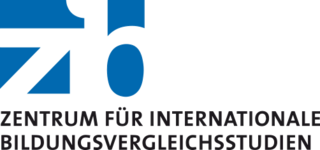Relationships between maternal socialization goals and practices and children’s self-regulation in different cultural contexts
Project Members
- Jorge Jaramillo & María Isabel Rendón (Universidad Santo Tomás, Bogota, Colombia)
- Lorena Muñoz (Universidad de Chile, Santiago de Chile, Chile)
- Mirjam Weis (Technical University of Munich, Centre for International Student Assessment (ZIB), Germany)
- Mariano Rosabal-Coto (Universidad de Costa Rica, San José, Costa Rica)
This international project aims to analyze children’s self-regulation and its relations to maternal socialization goals and practices and children’s school achievement, in different socio-cultural contexts. The goal of the project is to discover new insights on developmental conditions and outcomes of self-regulation in diverse countries as well as in diverse socioeconomic groups.
Dyads of mothers and children from three socioeconomic groups as well as the teachers of the children participate are included. Mothers are selected from three educational groups (i.e., mothers with low, middle, and high level of education). Children are 7 to 8 years old and in second school grade. For the measurement of children’s self-regulation a direct behavioral assessment as well as self-reports, teachers’ and parents’ reports are used. Maternal socialization goals and practices are assessed by interviews and self-reports.
Empirical studies across diverse disciplines have shown that self-regulation is crucial for children’s positive developmental outcomes. Researchers have highlighted the importance of children’s self-regulation for cognitive development, school achievement as well as socioemotional development. Many studies in North America and Europe give insights into the importance of self-regulation. In Latin American contexts, self-regulation rarely has been studied. Moreover, there is a lack of studies on maternal socialization goals and practices for children’s self-regulation by taking into account the role of cultural contexts.
This study aims to explore differences and similarities among different countries as well as among different maternal educational levels in socialization goals and practices and its relations to children’s self-regulation, and to their school achievement.
Status quo
Data has been collected in Chile and Colombia. Data analyses and publications on data from Chile and Colombia are in preparation.
Project Meetings
- March 2018: Project Meeting on assessed data of Chile and Colombia and planning of publications at the Universidad Santo Tomás, Bogotá, Colombia. Participants: J. Jaramillo, M. I. Rendón, M. Weis, L. Muñoz.
- July 2016: International Meeting on the planning of the research project at the Technical University of Munich, School of Education, Munich, Germany. Participants: J. Jaramillo, M. Weis, G. Trommsdorff, K. Reiss, K. Nagel.
- August 2015:Work meeting and academic event for the planning of the international research project at the Universidad Santo Tomás, Bogotá, Colombia. Participants: J. Jaramillo, M. I. Rendón, M. Weis, M. Rosabal, L. Muñoz.
Preliminary Publications
- Jaramillo, J. M., Rendón, M. I., Muñoz, L., Weis, M., & Trommsdorff, G. (2017). Children’s self-regulation in cultural contexts: The role of parental socialization theories, goals, and practices. Frontiers in Psychology, 8. http://dx.doi.org/10.3389/fpsyg.2017.00923➚
- Weis, M., Trommsdorff, G., & Muñoz, L. (2016). Children's self-regulation and school achievement in cultural contexts: The role of maternal restrictive control. Frontiers in Psychology, 7. http://dx.doi.org/10.3389/fpsyg.2016.00722➚
Web

